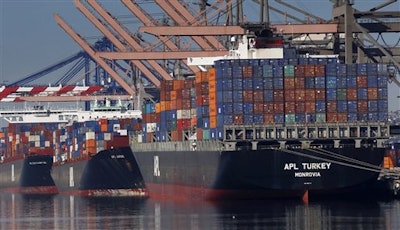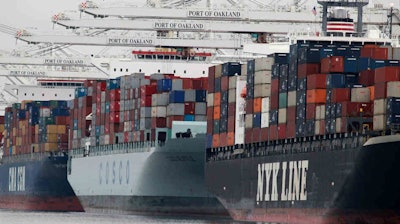

WASHINGTON (AP) — A drop in exports of petroleum and other U.S. goods increased the deficit in the broadest measure of U.S. trade in the July-September quarter.
The Commerce Department said Thursday the current account deficit increased to $124.1 billion from $111.1 billion in the second quarter. The current account tracks trade in goods and services and investment flows.
Cheaper oil weighed on the export of U.S. goods, which fell to $379.9 billion in the third quarter from $384.7 billion in the previous three months. American businesses and investors also earned less on their holdings overseas, while foreigners earned more on their U.S. investments.
The strong dollar has also dragged down U.S. exports, because it makes American goods more expensive overseas. The dollar's value has increased about 12 percent in the past year.
That trend is likely to continue now that the Federal Reserve has lifted short-term interest rates for the first time in seven years. At the same time, other major central banks, such as the European Central Bank and Bank of Japan, are still taking steps to lower rates and stimulate growth.
That discrepancy may cause investors to shift money into U.S. assets, which should start paying higher returns as interest rates rise. That, in turn, should further boost the value of the dollar, potentially weighing on exports in the coming months.
The Fed said Wednesday that it will increase the benchmark rate it controls to a range of 0.25 percent to 0.5 percent. That will slightly boost rates on credit cards and home equity lines of credit, but mortgage rates and auto loans aren't likely to rise much anytime soon.






















